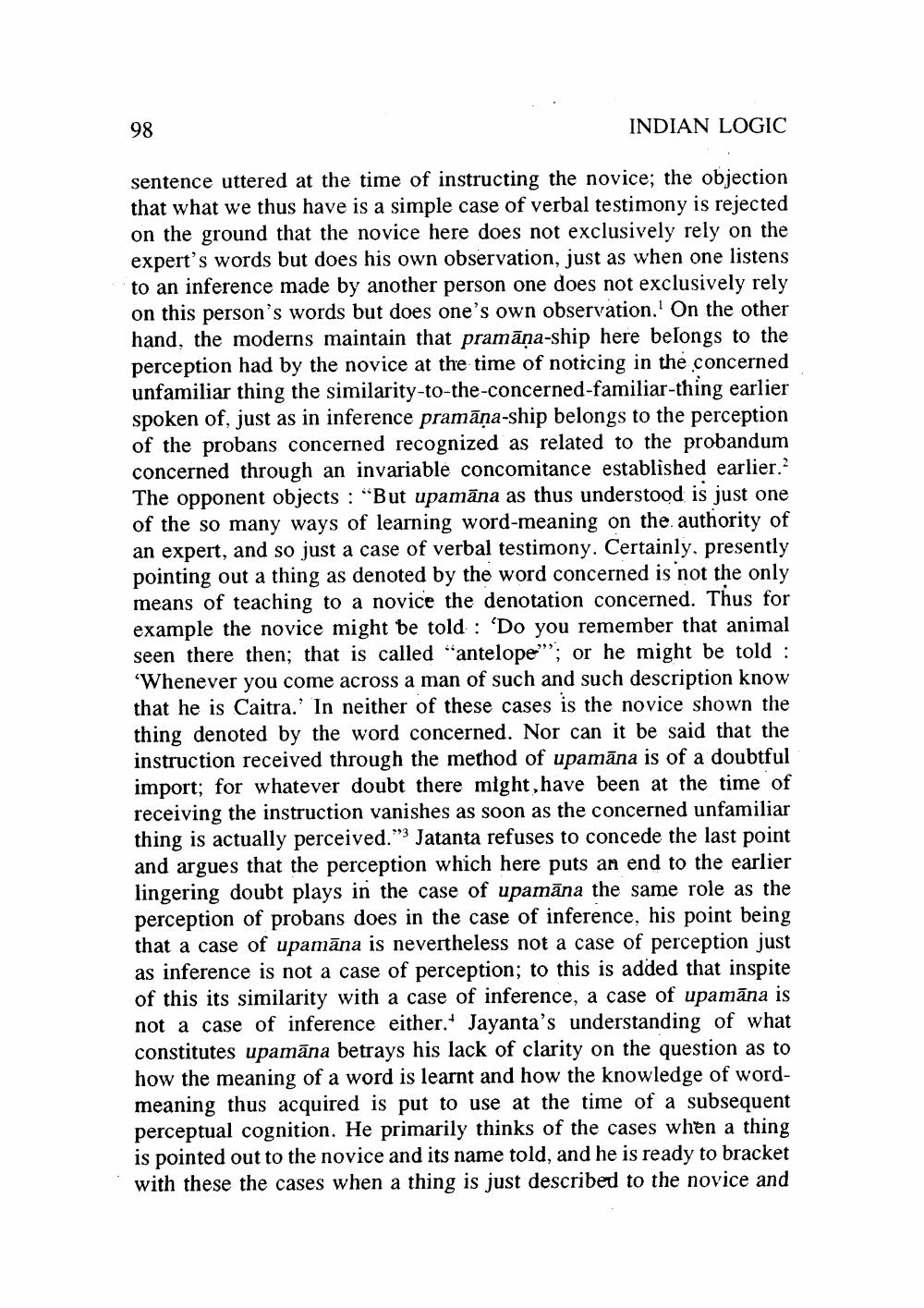________________
INDIAN LOGIC
sentence uttered at the time of instructing the novice; the objection that what we thus have is a simple case of verbal testimony is rejected on the ground that the novice here does not exclusively rely on the expert's words but does his own observation, just as when one listens to an inference made by another person one does not exclusively rely on this person's words but does one's own observation. On the other hand, the moderns maintain that pramaṇa-ship here belongs to the perception had by the novice at the time of noticing in the concerned unfamiliar thing the similarity-to-the-concerned-familiar-thing earlier spoken of, just as in inference pramäṇa-ship belongs to the perception of the probans concerned recognized as related to the probandum concerned through an invariable concomitance established earlier." The opponent objects: "But upamana as thus understood is just one of the so many ways of learning word-meaning on the authority of an expert, and so just a case of verbal testimony. Certainly, presently pointing out a thing as denoted by the word concerned is not the only means of teaching to a novice the denotation concerned. Thus for example the novice might be told: 'Do you remember that animal seen there then; that is called "antelope"; or he might be told: "Whenever you come across a man of such and such description know that he is Caitra.' In neither of these cases is the novice shown the thing denoted by the word concerned. Nor can it be said that the instruction received through the method of upamana is of a doubtful import; for whatever doubt there might,have been at the time of receiving the instruction vanishes as soon as the concerned unfamiliar thing is actually perceived." Jatanta refuses to concede the last point and argues that the perception which here puts an end to the earlier lingering doubt plays in the case of upamana the same role as the perception of probans does in the case of inference, his point being that a case of upamana is nevertheless not a case of perception just as inference is not a case of perception; to this is added that inspite of this its similarity with a case of inference, a case of upamana is not a case of inference either. Jayanta's understanding of what constitutes upamana betrays his lack of clarity on the question as to how the meaning of a word is learnt and how the knowledge of wordmeaning thus acquired is put to use at the time of a subsequent perceptual cognition. He primarily thinks of the cases when a thing. is pointed out to the novice and its name told, and he is ready to bracket with these the cases when a thing is just described to the novice and
98




